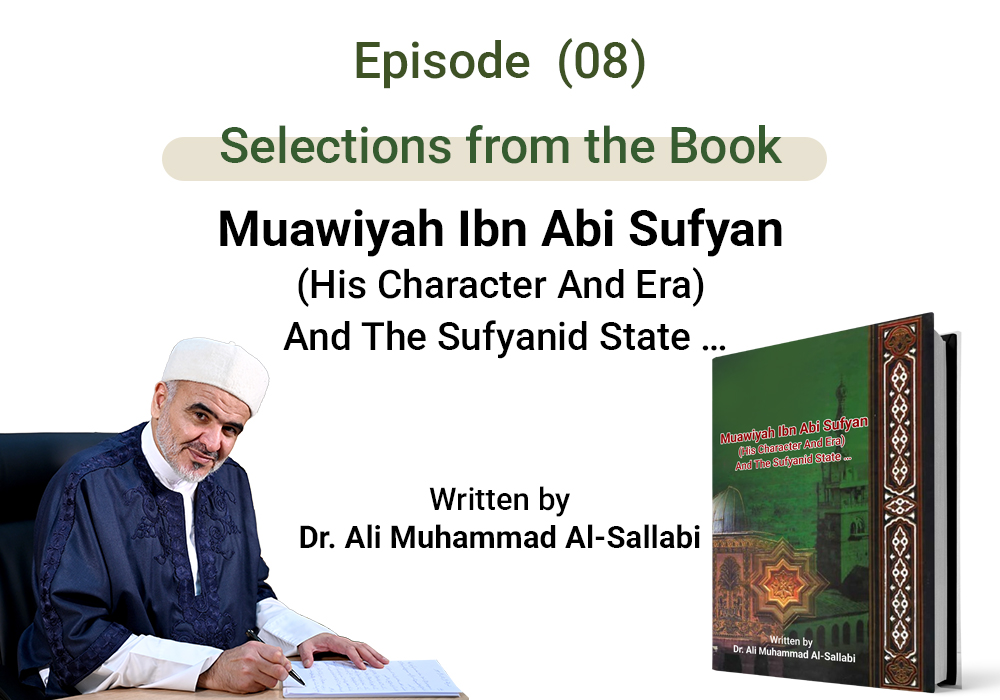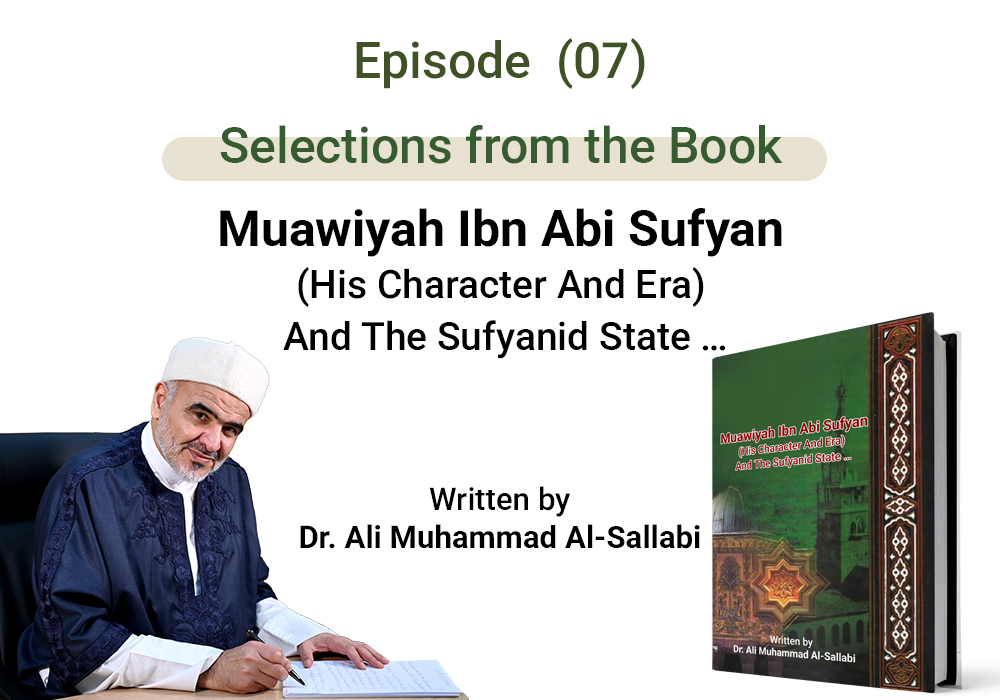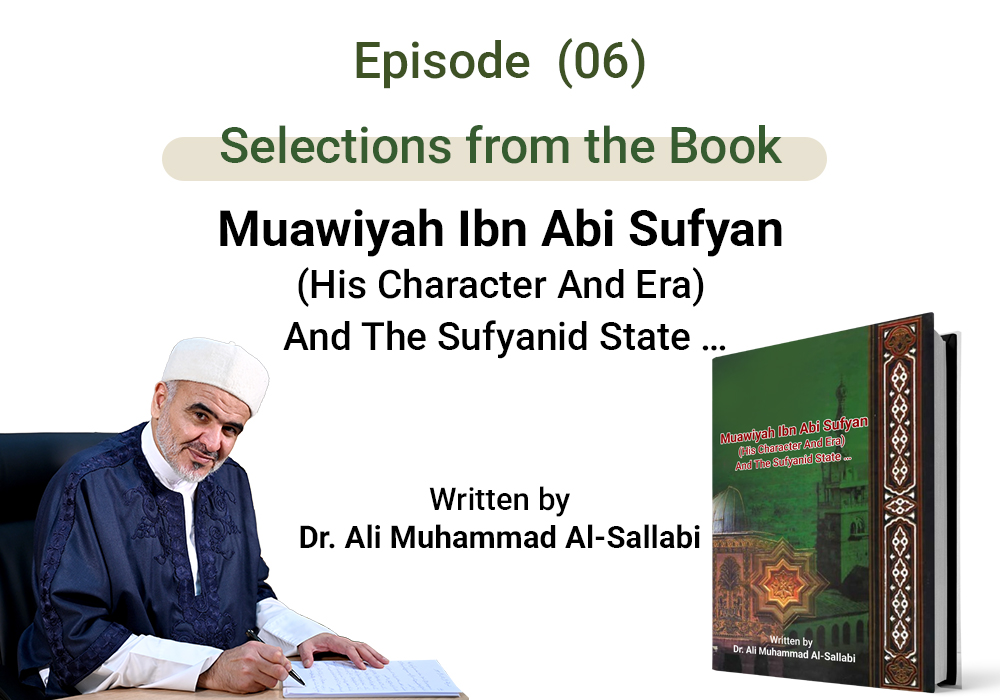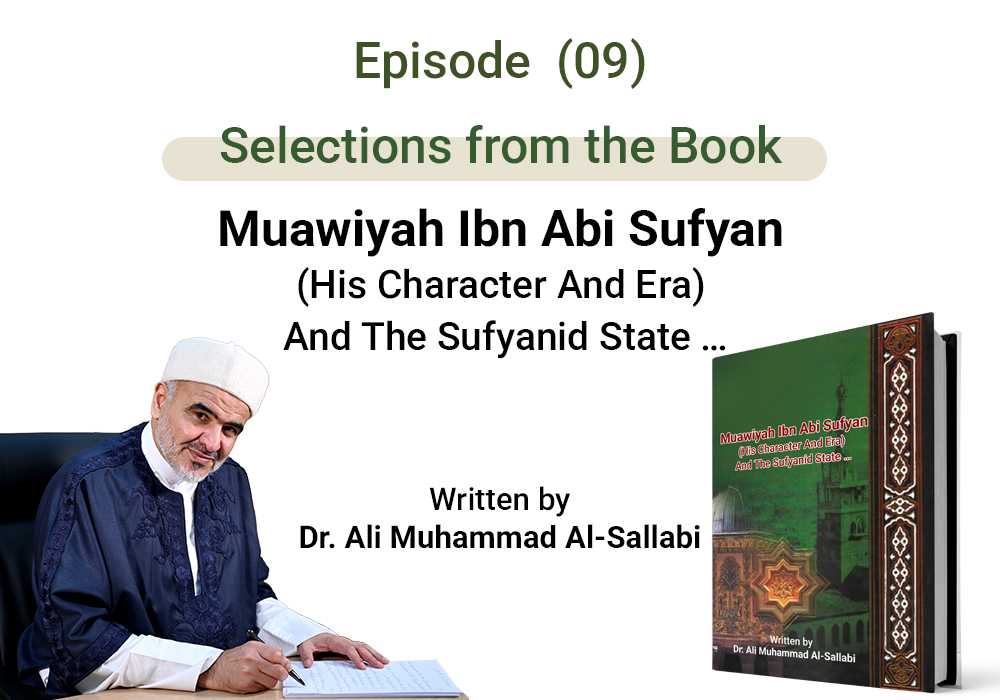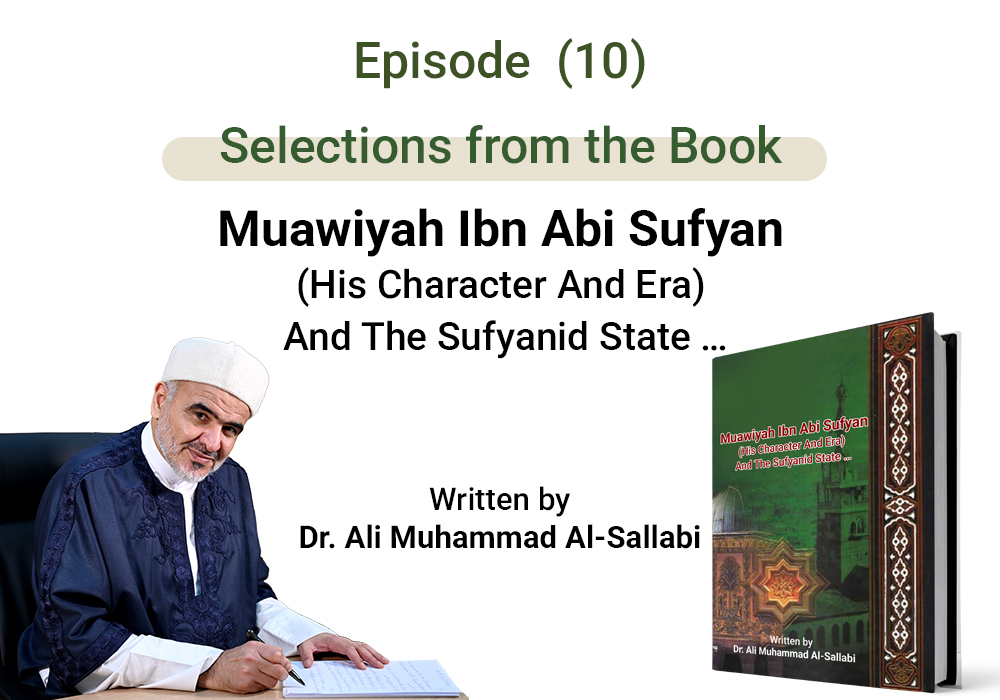Accusing Uthman, may Allah be pleased with him, Of Giving His Relatives From The Public Treasury
Selections from the Book Muawiyah Ibn Abi Sufyan (His Character And Era) And The Sufyanid State …
Written by Dr. Ali Muhammad al-Sallabi...
Episode (08)
Uthman, may Allah be pleased with him, was accused by the rabble and the Khawarij of extravagance in handling the Bayt al-Mal (public treasury) and of giving most of it to his relatives. This accusation was supported by a false propaganda campaign led by the enemies of Islam against him. These claims infiltrated history books and were treated by some thinkers and historians as facts, but they are false and unproven, as they were fabricated. What has been authentically reported of his giving to his relatives is in fact among his virtues, not his faults.
Uthman, may Allah be pleased with him, was a man of great wealth and was known for maintaining strong ties with his kin, giving them abundant support. Those wicked people resented him for this and claimed he was giving to them from the public treasury. Uthman responded to this accusation, saying: “They say I love my family and give to them… As for my love for them, it did not incline me toward injustice, rather I burdened them with responsibilities and upheld the rights of others against them. As for my giving, I give them from my own wealth. I do not deem it lawful to take the wealth of the Muslims for myself or for anyone else. I used to give large gifts from my own money to the people during the time of the Messenger of Allah (peace be upon him), and during the caliphates of Abu Bakr and Umar, even though I was then miserly and keen to hold on to my wealth. And now, when my family has grown older, and I have spent my life and what I possess on them, the heretics say what they say?!”
Uthman had divided his wealth and land among the Umayyads, and he treated his own children as he would anyone else he gave to. He began with the family of Abi al-Ays, giving the family of al-Hakam ten thousand each, so they received one hundred thousand in total. He gave the same to the family of Uthman, and he distributed among the family of al-Aas, family of al-Ays, family of Harb.
These texts and other well-known accounts, along with the authentic hadiths about his numerous virtues, show that the claims of his extravagance in the public treasury and spending it mostly on his relatives and building palaces are merely stories without proof or foundation.
The conduct of Uthman, may Allah be pleased with him, toward his relatives represents a noble and compassionate aspect of Islam, in accordance with the verse: {And give the relative his right, and [also] the poor and the traveler, and do not spend wastefully.} [al-Isra: 29].
It also represents a practical example from the life of the Prophet (peace be upon him). Uthman, may Allah be pleased with him, saw and knew of the Prophet’s (peace be upon him) actions in a way that his critics did not. He understood Fiqh in ways that many people did not. Among what he saw was the intense love the Messenger of Allah (peace be upon him) had for his relatives, his kindness toward them, and his generosity with them. The Prophet (peace be upon him) once gave his uncle al-Abbas more than he gave anyone else when the wealth of Bahrain was brought to him. For Uthman and all the believers, the Messenger of Allah (peace be upon him) is the greatest example.
Ibn Taymiyya — may Allah have mercy on him — responded to those who accused Uthman of favoring his family with large sums from the public treasury. He said: “It is claimed that he favored his relatives with large amounts of money from the public treasury — to the extent that he gave four men from Quraysh, whom he married his daughters to, four hundred thousand dinars, and gave Marwan one million dinars.
The response is: Where is the authentic transmission of this? Yes, he did give to his relatives, and he gave to non-relatives as well. He was generous to all Muslims. But such large sums require reliable evidence. Moreover, it should be said: this is clear falsehood, for neither Uthman nor any of the Rashidun caliphs gave anyone anything close to such amounts.”
- Ali Muhammad al-Sallabi, Muawiyah Ibn Abi Sufyan (His Character And Era) And The Sufyanid State, pp. 132-134.
- Al-Bukhari, Book of Jizya.
- The Beginning and the End (7/201).
- Sunnah curriculum (3/190).
- The Decisive Word on the Positions of the Companions, p. 83.
- Al-Tabari’s History (5/356).
- Uthman ibn Affan, by al-Sallabi, p. 148.
For further information and review of the sources for the article, see:
The Book of “Muawiyah Ibn Abi Sufyan (His Character And Era) And The Sufyanid State” on the official website of Sheikh Dr. Ali Muhammad al-Sallabi:


